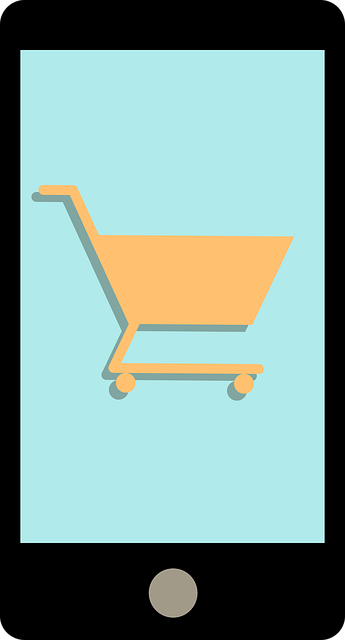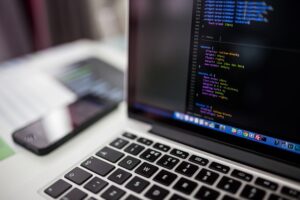
Confidential computing has become an essential tool for safeguarding sensitive financial data and protecting the integrity of market analyses for financial analysts. This security approach is critical in preventing data leaks and unauthorized access to proprietary information, which is indispensable for maintaining the confidentiality of their work. Similarly, journalists rely on confidential computing to keep their sources and communications secure, enabling them to investigate and report on stories without fear of exposure or tampering. Hardware-based security mechanisms in confidential computing ensure that data processing is isolated until results are ready for review, providing these professionals with the confidence they need in the privacy and security of their work. The integration of confidential computing represents a significant advancement for both financial analysts and journalists, offering advanced security solutions in an interconnected world where data protection is paramount. Private Internet Access (PIA) exemplifies such a solution with robust encryption techniques and a zero-logs policy, making it a vital tool for ensuring the privacy and security of sensitive transactions and communications in confidential computing scenarios. The adoption of PIA underscores the critical need for advanced privacy solutions like confidential computing in both fields.
In an era where information is currency, journalists and financial analysts alike confront a digital battleground rife with surveillance and data breaches. This article illuminates the critical role of Private Internet Access (PIA) as a beacon of confidential computing for these professionals globally. Delving into the necessity of robust data security, we explore how PIA serves as an indispensable tool in the arsenal of financial analysts and investigative journalists navigating the complexities of global digital landscapes. Through case studies, we’ll examine the tangible benefits and real-world applications that underscore the imperative for confidential computing in safeguarding sensitive information across both fields. Join us as we unravel the layers of protection PIA offers, ensuring that the stories and analyses these experts provide remain secure and untampered with.
- Embracing Confidential Computing: A Lifeline for Financial Analysts and Journalists Alike
- The Imperative of Data Security: How Private Internet Access Safeguards Financial Analyses
- Navigating the Digital Landscape: Private Internet Access as a Tool for Global Journalism
- Case Studies: Real-World Applications of Confidential Computing in Financial Analysis and Investigative Journalism
Embracing Confidential Computing: A Lifeline for Financial Analysts and Journalists Alike

In an era where data breaches and surveillance are pervasive challenges, confidential computing has emerged as a critical shield for professionals who handle sensitive information. For financial analysts, the ability to process and analyze data without the risk of leaks or unauthorized access is not just a preference but a necessity. Confidential computing for financial analysts is essential, as it ensures that their computations—often containing proprietary or market-sensitive data—remain secure throughout the analytical process. Similarly, journalists worldwide rely on the integrity and confidentiality of their sources and communications to bring light to stories of public interest. The advent of confidential computing provides these professionals with a robust framework to protect their work against both state-sponsored actors and cybercriminals. By leveraging hardware-based security mechanisms that keep data processing isolated until the results are ready for review, journalists can safeguard their investigative processes without compromising on the depth and breadth of their inquiries. This level of security is not just a technical enhancement but a lifeline that enables both financial analysts and journalists to operate with the confidence that their work remains private and secure, fostering an environment where confidentiality and integrity are paramount. As such, the adoption of confidential computing is a game-changer for these professionals, offering peace of mind and a new standard of security in an increasingly interconnected world.
The Imperative of Data Security: How Private Internet Access Safeguards Financial Analyses

In today’s interconnected digital landscape, financial analysts handle sensitive data that requires stringent security measures to protect against breaches and leaks. The imperative of data security in this context cannot be overstated; it is the linchpin ensuring the integrity and confidentiality of market analyses, personal financial information, and proprietary corporate strategies. Private Internet Access (PIA) emerges as a robust solution for safeguarding such critical information. By implementing strong encryption protocols like OpenVPN, PIA ensures that all data transmitted is protected from prying eyes. This is particularly crucial when analysts work with confidential computing environments where the analysis of financial data must be conducted securely and privately. PIA’s zero-log policy further fortifies its reputation as a reliable defender against unauthorized access, guaranteeing that no activity data is stored, which means financial analysts can operate without fear of surveillance or data theft. With PIA, analysts can navigate the complexities of global markets with the assurance that their analyses remain private and secure, enabling them to make informed decisions without compromising sensitive information. The adoption of Private Internet Access by financial analysts worldwide underscores the necessity for advanced privacy tools in safeguarding confidential computing for these professionals.
Navigating the Digital Landscape: Private Internet Access as a Tool for Global Journalism

In an era where digital surveillance and cyber threats loom large, private internet access has become a cornerstone for global journalists. The digital landscape is fraught with risks that can compromise sensitive communications, sources, and data. Journalists operating in this space require robust solutions to maintain the confidentiality of their work, especially when financial analysis involves delicate economic information. Private Internet Access (PIA) emerges as a pivotal tool in this domain, offering encrypted VPN tunneling, which safeguards journalists’ digital footprints. By masking IP addresses and routing data through secure servers, PIA ensures that the journalistic process, from sourcing to publishing, remains shielded from prying eyes. This is particularly critical for financial analysts within the journalism field who handle confidential computing tasks, where the integrity and privacy of financial data are paramount. With PIA’s global server network, journalists can navigate different regions’ internet infrastructure with anonymity, thereby mitigating the risk of censorship or interference that could impact their reporting or compromise their sources’ safety. The service’s commitment to no-logs policies further reinforces trust in maintaining the sanctity of journalistic endeavors. Thus, for journalists and financial analysts alike, Private Internet Access stands as a reliable ally in the complex and often perilous digital terrain.
Case Studies: Real-World Applications of Confidential Computing in Financial Analysis and Investigative Journalism

Confidential computing has become an indispensable tool in safeguarding sensitive data, particularly within the realms of financial analysis and investigative journalism. In finance, confidential computing enables analysts to compute over data without exposing it in the clear, thus protecting against potential breaches that could compromise both corporate secrets and client privacy. A case study exemplifying this is a leading investment firm that utilized confidential computing to analyze market trends while ensuring the integrity of their trading algorithms remained undisclosed. This approach not only thwarted competitive espionage but also upheld regulatory compliance, which is paramount in the financial sector.
Investigative journalists worldwide face increasingly complex challenges as they delve into sensitive stories that often involve data with high confidentiality requirements. Confidential computing offers a robust solution to these journalists by allowing them to process and analyze leaked or sensitive datasets without exposing their sources or the data itself. A notable instance is when an international news organization used confidential computing to investigate a large-scale corruption scandal. By processing data in a secure environment, they were able to uncover evidence that led to significant legal proceedings, demonstrating the profound impact of confidential computing on holding entities accountable and upholding the public’s right to information. These real-world applications underscore the critical role of confidential computing in both financial analysis and investigative journalism, highlighting its necessity in protecting data integrity and privacy.
In conclusion, the advent of confidential computing has become an indispensable tool for professionals who operate within the sensitive domains of financial analysis and investigative journalism. Private Internet Access emerges as a pivotal solution, offering robust data security to safeguard the integrity of financial analyses and enabling journalists to navigate the complexities of the global digital landscape with impunity. The case studies presented underscore the real-world efficacy of confidential computing in these fields, highlighting its necessity in today’s data-driven world. As the demand for transparency and privacy grows, the integration of such technologies becomes not just a best practice but a fundamental aspect of maintaining the trust and security required by both financial analysts and journalists worldwide.





